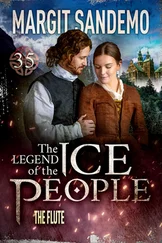Vinga was desperate. “I can take care of Gråstensholm until my relatives come.”
“As far as we know, there are no longer any legal heirs to Gråstensholm,” he replied. “Besides, how would you take care of such a big farm? After all, you haven’t even been able to take care of Elistrand.”
Vinga said: “I was doing a good job of it, but nobody had told me about the farm’s financial state.”
Mr Snivel reflected that this was fortunate for him, and gave Vinga an ugly smile.
“Well then, I’ll move to Linden Avenue,” she said. “That was our original family home.”
Mr Snivel replied: “That’s been leased, as you know, and you have to face facts! You’re all alone! Deserted by everybody!”
Alone ... deserted by everybody ... In the coming years, those words were to echo in her ears.
Mr Snivel leaned back. “We’ve made arrangements for you, Vinga. We’re not heartless. You’ll go to work for Mrs Fleden in her house outside Christiania. That will be your future home.”
His remark sent a shiver down Vinga’s spine. Mrs Fleden was notorious for her tyrannical ways. Those who went there were treated worse than prisoners. Like monks and nuns, they were packed together in small rooms and forced to live lives of prayer, work, hunger and beatings.
That very night, Vinga ran away. She loaded what she felt she and the goat would need onto a small cart and climbed up to the mountain ridge. She would have liked to take a couple of chickens with her but they were too difficult to transport. She didn’t dare to take a cow because she was afraid that the smallholding wouldn’t sustain a large animal.
But all that had been a long time ago. She had managed. She and the goat had survived two cold winters. In the autumn, she emptied the forest of berries and at harvest time she would slip into the fields and glean the leftover ears of corn, which she would grind to make her bread. Sometimes she would turn up before the reapers, because the winter was long and the goat hungry. What did it matter if she stole a few ears of corn? The peasants couldn’t count them all!
Vinga almost severed her ties with the human race. She blended in with the forest and became a part of it. The woodcutters would speak of the forest nymph they glimpsed gliding past them, a tiny creature dressed in skins, with shy eyes and floating, flaxen hair. Someone had the idea that it might be Tark’s Vinga who hadn’t been seen for so long, but the others just laughed and said that they must have been imagining things.
Of course, people out picking berries or walking might pass the smallholding, but from the outside the house looked so derelict that it was impossible to imagine anybody living there. The porch was so rotten that it was impossible to enter the house through the front door. It didn’t occur to anyone that Vinga, who was agile, could jump over all the junk that she kept there on purpose so that nobody would dare to walk in.
She became as wild as a wolf and as shy as a deer. Hunger was her companion and so was the cold. She moved like an animal, swiftly, nervously and fearful. Her eyes were always searching, ready to signal a warning to her body that it had to flee. She would start at the slightest sound, no matter how vague it was, and she was alert to any noise that was different from the usual ones.
She didn’t lose her ability to speak, because her goat was used to receiving confidences. But she had forgotten how to weep. That was something that belonged to her first, lonely year.
Her treasured moments were those when she sat at the very edge of the mountain ridge, looking down on the parish.
There lay Gråstensholm, deserted, abandoned, with the wind howling through the empty windows of the tower. The colour on the walls was fading. Leaves rustled in the courtyard in the autumn, because there was nobody to rake them up. The fields were still ploughed, probably by the tenant farmer at Linden Avenue. But the house itself was empty.
But recently, she had seen activity on the farm. Ladders were raised against the walls and they were repainted with dark-brown tar. Big animals were led into the stables. It was something that both delighted and worried her.
Might they be her people, come from Sweden? Should she venture down into the village?
One day, a carriage drove up to her smallholding on the mountain ridge and a heavy man waddled out and up the step. He behaved as if he owned the place. It was the man who had sent shivers down her spine when he had suggested that she could work at Mrs Fleden’s establishment.
Mr Snivel.
He had no business at Gråstensholm. Vinga was filled with anger but she was too shy to interfere.
Elistrand was too far away for her to see whether there were people there or not.
The era of the Ice People was over in Gråstensholm Parish.
She thought she might be the only one left – there had been two families living in Sweden but she knew nothing about them. There had been so few of them. There was Ingela and her son, Ola. And there was Arv Grip, who was on his own. That was all. Besides, Vinga didn’t know where they lived. She had almost forgotten them.
One day in the spring of 1794, Vinga was running about picking the first shoots of fresh herbs, which she wanted to make into a soup.
She loved spring. Now she no longer had to sleep up against the goat while the snow was blowing through the cracks in the walls and the holes in the ceiling; she no longer had to tear bark off the birch trunks and grind it to make bread; she no longer had to ration the goat’s food and hear it bleating piteously with hunger, and she didn’t have to feel its skinny chest under her hand.
Once spring arrived, she and the goat would run about, finding nourishing green shoots under the withered leaves. The goat nibbled the buds of the young birch trees and the new green shoots on the fir trees gave Vinga renewed energy.
She couldn’t help registering that her life had been reduced to nothing but a struggle for survival. There was no longer anything constructive about her existence because there was no time for anything else.
Nevertheless, a thought was working in her subconscious mind. She had a goal, although it was growing weaker as the years went by: she wanted to take back what had been stolen from her.
There were voices in the forest, young and happy. Vinga stiffened, looked anxiously about, and saw that the goat was grazing in a dip where it would not be noticed. She herself ran as lightly as a gazelle to hide, but on second thoughts she edged closer to the voices, frightened but curious, like the forest animal she had turned into.
She crouched behind some fallen tree trunks. There they were. A young man and a young woman. They were walking hand in hand, talking and chattering, with their eyes cast down.
Vinga felt a deep pang of yearning in her soul. There were two of them, and they were together. It didn’t interest her that they were of opposite sexes, because that was a world she had not yet learned about. She just couldn’t forget the fact that they were a pair.
The couple stopped. They looked each other in the eye, holding hands. Their eyes radiated something that Vinga had almost forgotten: something that she would occasionally see in her dreams. Mother’s and Father’s eyes, full of love, warmth and tenderness for her: Mother ... and Father! She wanted the couple to go away so that she could be alone with her grief. Fortunately, her pain didn’t last long. They walked away slowly, and if they detected something that shone white behind the fallen trees, something that looked like alert, cautious eyes following them as they walked ... well, then ... it must have been a patch of sunlight on the grass, or a squirrel wondering who was walking in its forest.
Читать дальше












